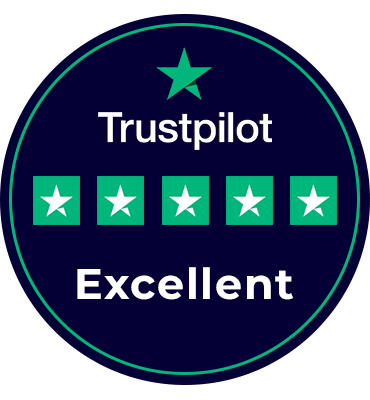Logistics Software Development : A Comprehensive Guide for Businesses to Optimize Operations
Shyam Singh
Last Updated on: 30 April 2025
Have you wondered how eCommerce giants or global supply chain enterprises manage their complex operations so seamlessly?
The answer lies in logistics software development, a technological revolution enabling businesses to streamline transportation, warehousing, inventory management, and more.
Why Logistics Software Development is Crucial for Your Business
For enterprises handling logistics and supply chain operations, leveraging customized software solutions can boost efficiency, cut costs, and enhance customer satisfaction. Whether you're a budding startup or a seasoned player, investing in logistics software could revolutionize your business.
This guide will walk you through the fundamentals of logistics software development, its benefits, essential features, steps to development, and answers to frequently asked questions.
What Is Logistics Software Development?
Logistics software development refers to creating tailor-made digital solutions that automate, optimize, and manage supply chain and transport operations. Such software enables companies to address critical logistics challenges and ensure smooth operations.
Key logistics processes that benefit from software solutions include:
- Fleet and transportation management
- Inventory and warehouse tracking
- Route optimization
- Real-time shipment tracking
- Freight management
- Order processing and fulfillment
With logistics software, companies can eliminate manual processes, reduce errors, improve visibility across operations, and boost overall productivity.
Why Is Logistics Software Development Crucial for Your Business?
Adopting logistics software offers numerous advantages to businesses, from operational improvements to cost savings. Key benefits include:
Improved Operational Efficiency
Automation of workflows—such as route planning, order processing, and shipment tracking—reduces time, effort, and manual intervention, enabling teams to focus on strategic decision-making.
Lower Costs
Optimized routes minimize fuel consumption and labor-related expenses. Predictive analytics foresee potential disruptions, saving you from operational inefficiencies.
Real-Time Tracking and Visibility
Real-time shipment updates ensure businesses and customers can monitor packages every step of the way, building transparency and trust.
Enhanced Inventory Management
Logistics software offers live inventory monitoring, helping businesses avoid overstocking or shortages while streamlining warehouse operations.
Improved Customer Satisfaction
Faster delivery times, accurate estimated arrival dates (ETAs), and seamless order processing create an exceptional customer experience, fostering repeat business.
Key Features Every Logistics Software Needs
When developing logistics software, it’s essential to include the features that will drive efficiency and streamline operations. Here are some must-have features:
1. Transportation Management System (TMS)
- Fleet tracking
- Route optimization algorithms
- Driver performance analysis
2. Warehouse Management System (WMS)
- Real-time inventory monitoring
- Barcode scanning for inventory accuracy
- Automated replenishment notifications
3. Freight Management
- Efficient carrier selection
- Freight billing and invoicing
- Accurate cost estimation tools
4. Order Management
- Multi-channel order synchronization (across eCommerce, retail, etc.)
- Automated order processing
- Flexible returns and refunds management
5. Real-Time Shipment Tracking
- GPS-enabled tracking systems
- Delivery notifications for timely updates
- Alerts for unforeseen delays
6. Predictive Analytics & Reporting
- Data-driven cost analysis
- Performance insights for fleet and warehouse operations
- Demand and order forecasting for better planning
How To Develop Custom Logistics Software in 6 Steps
Creating logistics software involves well-planned stages. Here’s a simplified roadmap to guide you through the process:
Step 1. Requirement Analysis
Begin by analyzing your current pain points and identifying must-have features. Consult managers and teams to ensure your development meets their operational needs.
Step 2. Planning & UX Design
Create wireframes and mock-ups to design an intuitive, user-friendly interface. UX design plays a crucial role in whether employees and customers will readily adopt your solution.
Step 3. Software Development
Develop robust backend systems to support transportation management, warehouse tracking, and inventory control. Collaborate with experienced developers specializing in logistics software development.
Step 4. Integration with AI & IoT
AI-powered analytics provide predictive insights, while IoT is crucial for real-time tracking. These integrations improve decision-making and operational accuracy.
Step 5. Quality Assurance & Testing
Rigorous testing ensures stability, bug-free performance, and compatibility across devices. Ensure mobile compatibility to enable tracking and operations on the go.
Step 6. Deployment & Maintenance
Launch the software and monitor its success early on. Provide ongoing maintenance to implement software updates, security patches, and customer feedback.
Off-The-Shelf vs. Custom Logistics Software
When considering logistics software, businesses often choose between off-the-shelf solutions and custom development. Here’s how they compare:
Feature Comparison
| Feature | Off-The-Shelf Software | Custom Software |
|---|---|---|
| Cost | Lower upfront cost | Higher initial investment |
| Customization | Limited flexibility | Fully tailored to business needs |
| Scalability | Difficult to scale | Easily adaptable |
| Integration | Basic compatibility | Seamlessly integrated |
| Security | Standard security | Advanced, company-specific security |
For startups with budget limitations, off-the-shelf solutions may suffice. But for scalability and competitive advantage, custom logistics software development is the ideal long-term investment.
Avoid These Mistakes in Logistics Software Development
When developing logistics software, avoid these common pitfalls to maximize efficiency and ROI:
❌ Ignoring Scalability
Your business will grow—make sure your software can grow with it.
❌ Poor Data Security
Logistics operations handle sensitive data. Invest in advanced encryption and cybersecurity protocols to prevent breaches.
❌ Overlooking Mobile Compatibility
Real-time tracking and GPS updates need to be mobile-friendly for fleet managers and drivers.
❌ Lack of Training for Employees
Provide staff with thorough training to ensure software adoption and optimal use.
Frequently Asked Questions About Logistics Software Development
1. How much does logistics software development cost?
Costs vary widely depending on complexity. Basic systems start at approximately $20,000, while advanced custom solutions could exceed $100,000.
2. How long does development take?
Development time can range from three months for a simple solution to over a year for a feature-rich, custom platform.
3. Which industries benefit from logistics software?
Logistics software benefits industries such as manufacturing, freight forwarding, retail, eCommerce, and third-party logistics (3PL) providers.
4. Can logistics software integrate with existing tools?
Yes, logistics software can integrate with ERP systems, CRM platforms, eCommerce solutions, and payment processors for seamless operations.
5. Is logistics software suitable for small businesses?
Absolutely! Even small businesses can use logistics software for inventory tracking, fleet management, and smoother workflows.
The Road Ahead
Logistics software development has become vital for businesses striving to stay competitive in an evolving landscape. From streamlining operations and reducing costs to offering real-time tracking and enhancing customer satisfaction, a robust logistics solution is a true game-changer.
Are you ready to take your logistics operations to the next level with custom software?
Get in touch with our experienced team today to build a tailored solution perfectly suited to your business needs

 Verified
Expert in Software & Web App Engineering
Verified
Expert in Software & Web App Engineering
I am Shyam Singh, Founder of Fulminous Software Private Limited, headquartered in London, UK. We are a leading software design and development company with a global presence in the USA, Australia, the UK, and Europe. At Fulminous, we specialize in creating custom web applications, e-commerce platforms, and ERP systems tailored to diverse industries. My mission is to empower businesses by delivering innovative solutions and sharing insights that help them grow in the digital era.
Partner with Top-Notch Web Application Development Company!
Discuss your Custom Application Requirements on info@fulminoussoftware.com or call us on +1-903 488 7170.
15 Days Risk-Free TrialRecommended Articles


